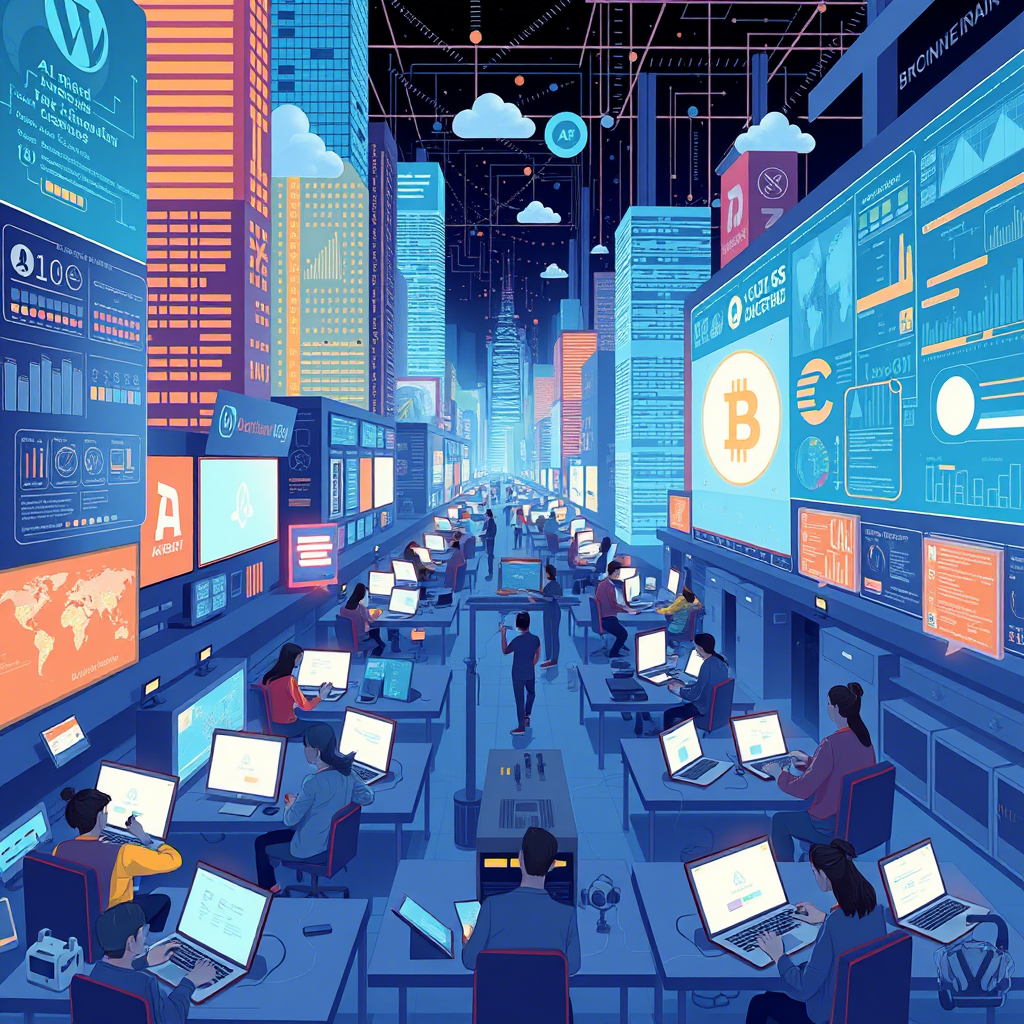
1. The Digital Revolution: A New Era of Opportunity for Online Business
The internet has fundamentally transformed the way we live, work, and interact with the world. What started as a simple network for sharing information has evolved into a global ecosystem that powers economies, connects billions of people, and creates endless opportunities for online business, innovation, and entrepreneurship.
- From Information Superhighway to Economic Powerhouse : In the early days of the internet, it was primarily used for communication and research. Today, it’s a thriving marketplace where goods, services, and ideas are exchanged at lightning speed.
- The Gig Economy and Remote Work : The rise of platforms like Uber, Airbnb, Fiverr, and Upwork has given birth to the gig economy, allowing millions of people to monetize their skills and assets without needing traditional jobs. Similarly, remote work has become mainstream, enabling individuals to earn a living from anywhere in the world.
2. The Democratization of Opportunity
One of the most profound impacts of the internet is its ability to level the playing field. Unlike traditional industries that often require significant capital, connections, or geographic proximity, the digital economy allows anyone with an internet connection to participate.
- Breaking Down Barriers : You no longer need a brick-and-mortar store to sell products, a publishing deal to write a book, or a recording studio to create music. Platforms like Shopify, Amazon Kindle Direct Publishing (KDP), and SoundCloud have made it possible for creators and entrepreneurs to reach global audiences directly.
- Global Reach, Local Effort : Thanks to the internet, a small business owner in India can sell handmade crafts to customers in the United States, while a teacher in Canada can offer online courses to students in Africa. The internet has erased borders, creating a truly global marketplace.
3. The Evolution of Online Income Streams
Over the past two decades, the ways people make money online have diversified dramatically. From freelancing and e-commerce to affiliate marketing and content creation, there’s something for everyone in the digital economy.
- Freelancing and the Gig Economy : Freelance platforms like Upwork, Fiverr, and Toptal have enabled professionals—writers, designers, developers, marketers—to offer their services to clients worldwide. Whether you’re looking for short-term gigs or long-term contracts, these platforms provide flexibility and access to a vast pool of opportunities.
- E-Commerce and Dropshipping : With tools like Shopify, WooCommerce, and Oberlo, starting an online store has never been easier. Dropshipping, in particular, allows entrepreneurs to sell products without holding inventory, making it a low-risk entry point into the world of e-commerce.
- Content Creation and Monetization : Platforms like YouTube, TikTok, Instagram, and Substack have turned content creation into a viable career path. Creators can earn money through ads, sponsorships, merchandise sales, and even paid subscriptions.
- Passive Income Opportunities : The internet has also opened doors to passive income streams, such as affiliate marketing, selling digital products (e.g., eBooks, templates), and investing in stocks or cryptocurrencies.

4. Why Now Is the Best Time to Make Money Online
The convergence of technological advancements, widespread internet access, and changing consumer behaviors has created a perfect storm of opportunity. Here’s why now is the ideal time to dive into the digital economy:
- Increased Accessibility : High-speed internet and affordable devices have made it easier than ever to get online and start building a presence.
- Growing Demand for Digital Services : As more businesses move online, the demand for digital marketing, web development, graphic design, and other tech-related services continues to grow.
- Consumer Shifts Toward Online Shopping : The pandemic accelerated the shift toward e-commerce, with consumers increasingly turning to online stores for everything from groceries to luxury items.
- Low Startup Costs : Unlike traditional businesses that require significant upfront investment, many online ventures can be started with little to no money. For example, you can launch a blog, create a YouTube channel, or begin freelancing with minimal equipment and resources.
5. The Future of the Digital Economy
As technology continues to evolve, so too will the opportunities within the digital economy. Emerging trends like artificial intelligence, blockchain, virtual reality, and the metaverse are already shaping the next wave of innovation.
- AI and Automation : Tools powered by artificial intelligence are streamlining tasks, improving efficiency, and opening up new possibilities for entrepreneurs. For instance, AI-driven chatbots can handle customer service inquiries, while machine learning algorithms help optimize marketing campaigns.
- Blockchain and Decentralization : Blockchain technology is revolutionizing industries like finance, art, and real estate. Cryptocurrencies, NFTs (non-fungible tokens), and decentralized finance (DeFi) are just a few examples of how this technology is creating new avenues for wealth generation.
- The Metaverse : Virtual worlds and immersive experiences are becoming the next frontier for commerce, entertainment, and social interaction. Early adopters are already exploring ways to monetize their presence in these digital spaces.








